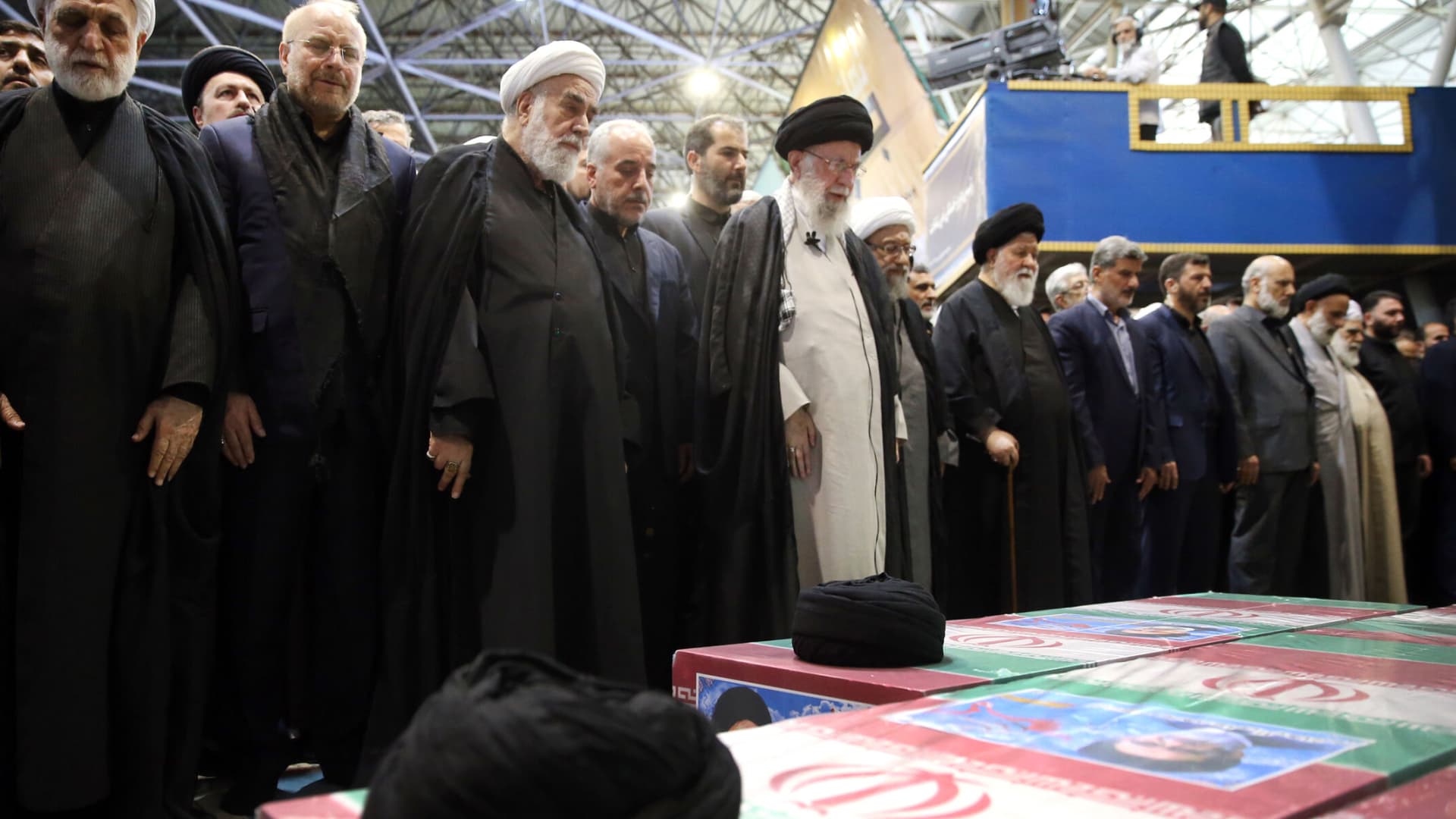Iran’s Supreme Leader Ali Khamenei leads funeral prayer for the late Iranian President Ebrahim Raisi, Foreign Minister Hossein Amir-Abdollahian and other officials who died in a helicopter crash at the Tehran University campus in Tehran, Iran on May 22, 2024.
Iranian Leader Press Office | Anadolu | Getty Images
Iran is holding snap elections on June 28 following the sudden death of former Iranian President Ibrahim Raisi in a helicopter crash. But the vote is neither free, nor likely to bring about any significant change in the country, analysts say.
The election will take place against the backdrop of a battered Iranian economy, widespread popular discontent and crackdowns on dissent. The county is also dealing with high inflation, heavy Western sanctions, mounting tensions with the U.S., ramped-up Iranian nuclear enrichment, and the Israel-Hamas war.
Iran’s ultra-conservative Guardian Council, which ultimately decides who is allowed on the ballot, has approved a list of six candidates to run for the presidency. Most are hardliners who hold staunch anti-Western positions, with one candidate representing the reformist camp. Women who had registered as candidates were all disqualified by the Council.
“Six out of 80 candidates made it past the Guardian Council’s vetting process. Of these six, five are genuine hardliners and one a token reformist,” Behnam ben Taleblu, a senior fellow at the Foundation for Defense of Democracies, told CNBC.
He described Iran’s supreme leader Ayatollah Khamenei as the country’s “only ‘voter’ of significance.”
He’s “looking for continuity, not change,” ben Taleblu said, adding that half of the approved candidates have been sanctioned by Western governments.
‘Relatively predictable’ outcome
For some Iran watchers, the upcoming election presented an opportunity for the country’s government to “course-correct,” or work to rebuild its relationship with much of the Iranian populace and improve its image.
“That’s especially in the aftermath of the protests, the crackdowns, and just overall increased public dissatisfaction that’s almost become a hallmark of Raisi’s time in office. The leadership here had … an option to create at least a semblance of a competitive election,” said Nader Itayim, Mideast Gulf Editor at Argus Media.
Iranian President Ebrahim Raisi looks on during a TV interview, in Tehran, Iran May 7, 2024.
Iran’s Presidency | WANA | Via Reuters
But with Sunday’s announcement of the approved candidates, “those hopes were…
Click Here to Read the Full Original Article at Top News and Analysis (pro)…


